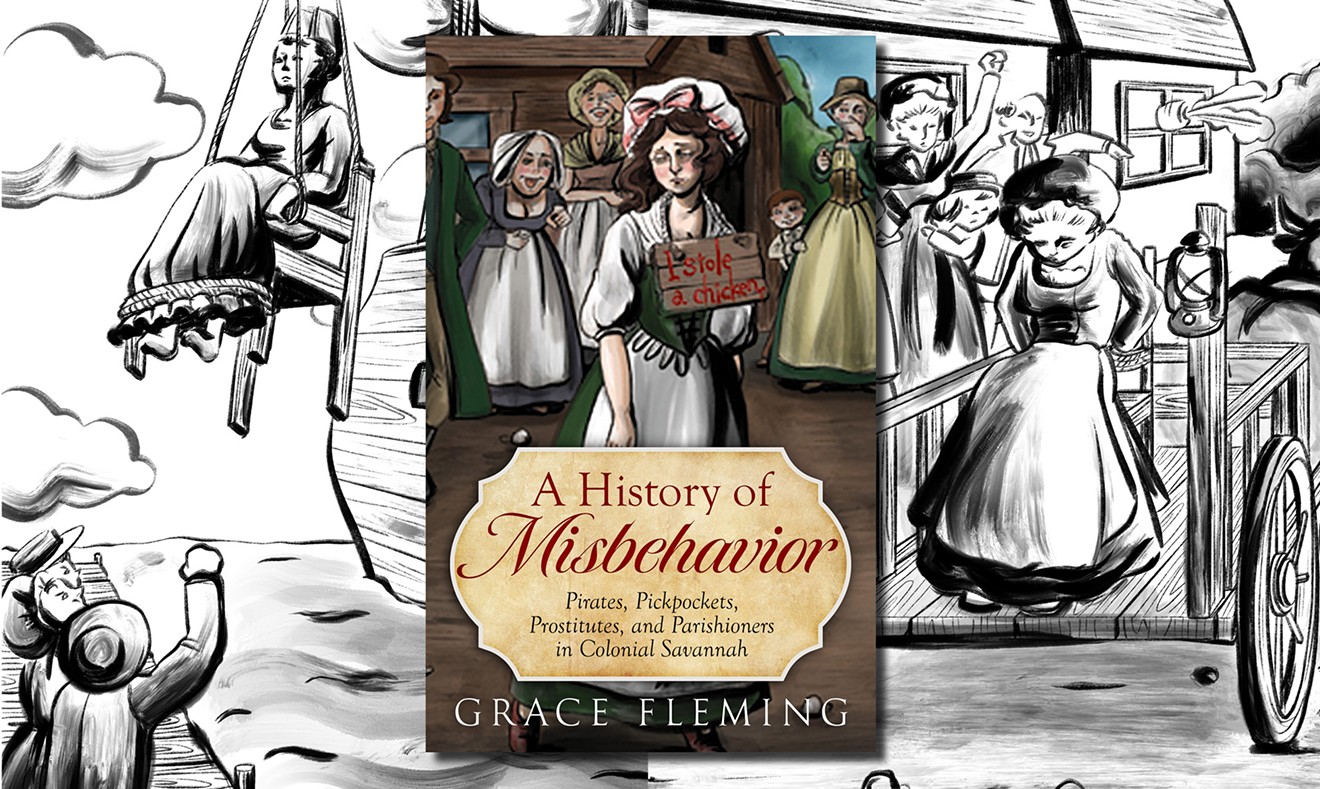Shipwrecks, scalawags and scandal, oh my! Local author Grace Fleming’s third novel “A History of Misbehavior: Pirates, Pickpockets, Prostitutes and Parishioners in Colonial Savannah” has it all.
From readers interested in local history to those who just love a juicy story based in fact, this book covers it all.
Published in July, the book features 21 chapters filled with interesting and quirky local lore.
After researching Savannah history over the last 20 years, Fleming sat down to finish the novel last year when she had more time available during the pandemic.
A long-time Savannah resident, she said she is drawn to the historical uniqueness embedded in one of the country’s most haunted cities.
“Most people associate Savannah with ghosts, and the people that I am talking about are the actual ghosts of Savannah as they were the first citizens. Part of the reason I fell in love with Savannah is I fit in here. Savannah people are quirky and would take in the haunted stories and enjoy walking around with a drink in their hands.” Fleming said.
Filled with tales of torture devices, troublesome women, and fisticuffs, the novel paints a picture of what early life was like in the Hostess City.
Using colonial court records, diaries, and journal entries, “A History of Misbehavior” provides entertaining vignettes and fascinating episodes from Georgia’s beginnings.
An introduction to the novel explains, “Comprised of London’s ‘deserving poor,’ the colony was filled with a good share of hard-drinking, rough-hewn souls and petty criminals. Pickpockets, prostitutes, pirates, and everyday scoundrels walked the Savannah streets, where they were surrounded by dangerous swamps and skulking Spanish spies from Florida.”
Fleming said “What I try to get across in this book is Savannah is oddball—but it comes from the very first citizens who were petty criminals supplemented by hard criminals from an Irish prison ship that crashed off the coast, intending to go to the Caribbean. The ship was turned away from two ports because they were too much trouble, so Oglethorpe purchased the occupants as indentured servants. The first two murders in Savannah were committed by them.”
While researching the first general store’s inventory from the 1730’s, the itemized list conjured up images of everyday life in colonial Savannah for Fleming.
She said “Of course they had food stuff and guns and furs like you would find, but there was also a mix of sweet and rascally in the store. They had jewelry for your sweetheart and belly bands for convicts to transport them to court in the same place. It was fascinating to see the inventory of the store with all these items.”
Another quirky story describes one of the first courtroom cases when one man was on trial for trying to sell his wife, and the other was on trial for trying to buy the man’s wife. It also tells of accounts when torture devices and mockery were used to punish lawbreakers.
“Savannah was famous for torture devices because there was much misbehavior. All the northern colonies had a device called a ‘ducking stool’ mainly used to dunk women into water as torture. Savannah decided to ‘duck’ a woman and didn’t have a proper stool, so they put a woman overboard of a ship tied to a chair where she got battered on the side of the boat. Even the torture devices were dysfunctional,” notes Fleming.
“A History of Misbehavior: Pirates, Pickpockets, Prostitutes and Parishioners in Colonial Savannah” will be in local stores soon and is available for purchase at online retailers Amazon.com and Barnes and Noble now.


